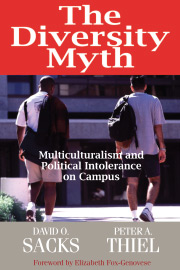Perhaps the most startling revelation of the current Clinton scandal is that Newsweek held off publication of the Monica Lewinsky story out of a concern for “journalistic ethics.” Only after the allegations spread on the Internet did the prestige media pick up the story.
Thus “journalistic ethics” means two contradictory things: not just a set of procedures to prevent bias and writers’ idiosyncrasies from creeping into stories, but also a set of institutionalized biases among the prestige media about what sorts of stories are legitimate for publication in the first place.
The Internet is undermining both kinds of journalistic ethics—the bias-prevention kind and the bias-institutionalization kind—and despite predictable hand-wringing from the traditional media, this is not altogether such an unhealthy development.
Breaking a story like this even five years ago would have required a support staff, ad department, and printing press or TV studio. But the Internet has enabled a new breed of guerrilla journalists to reach large audiences without any of these barriers to entry—quite a change from the days when the only truly national sources of information were three network news departments and a couple of influential newspapers.
The old media culture was by no means monopolistic, but it was more parochial and less fragmented than today’s. And it was in this cartel-like environment that the concept of “journalistic ethics” arose.
When a relatively small caste of reporters and editors gets to decide what the rest of the country knows, well, they had darn sure better get it right. Watch the movie “All the President’s Men” and you will see that reporters Bob Woodward and Carl Bernstein’s greatest challenge was not uncovering Nixonian dirty tricks, but rather persuading two sources to go on the record in each instance.
Undoubtedly, such hard-fast journalistic rules prevented mistakes. But they can also nix many true stories. There is a tradeoff: high standards may guarantee few mistakes in print (statisticians call this “type I” error), but they also result in more missed opportunities (“type II” error). Reliability competes with availability.
The Internet is a truly revolutionary development for two reasons. First, on the supply side, the Internet busts up the prestige media’s cartel on information production and delivery. By providing an inexhaustible set of alternatives, it highlights, and thus undermines, the institutionalized biases of this elite caste.
Second, on the demand side of the equation, the Internet democratizes ethics decisions previously entrusted to elite editors. Not only can people curious about the private lives of public figures satisfy that demand without the interference of censorious editors. They now determine the trade-off between reliability and availability itself. What is the proper standard, after all? Total accuracy, as the prestige media demand for their stories, or some mix of rumor and fact? There is no right answer to this question; people now get to decide for themselves.
With Internet sites rapidly becoming primary sources of information for many people, the prestige brands increasingly are acting as a kind of Consumer Reports, to help make a secondary cut about what it is credible. This trend will accelerate as future Linda Tripps begin to understand this tradeoff and become willing to leak to lesser-known brands that will print all information without delay.
Admittedly, this process is confusing and susceptible to manipulation because no one knows exactly how to discount all the new information. Should Internet gossip be believed 80 percent of the time, 50 percent, 20 percent, or not at all? President Clinton has benefited enormously from the uncertainty this new technology has caused: If JFK was the first television president, Clinton is the first Internet president. Twenty-five years ago, with the media calling you a liar, a high-risk strategy of complete denial could not stand up. Today, such a strategy is viable because people are still trying to figure out whom to discount more—Clinton or the media—and because, despite Watergate, the president of the United States is still a strong brand, built up over many generations by names such as Washington, Lincoln and Roosevelt.
Whether this confusion ever dissipates is an open question. The somewhat outdated concept of “journalistic ethics,” so synonymous with central control of information, may simply give way to a posture of permanent skepticism.
While this may help Clinton survive, it may also be the harbinger of an age in which individuals so distrust politics that the type of following once enjoyed by presidents and publishers becomes impossible. On balance, that may come as welcome news to all but those in power.








